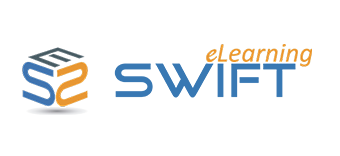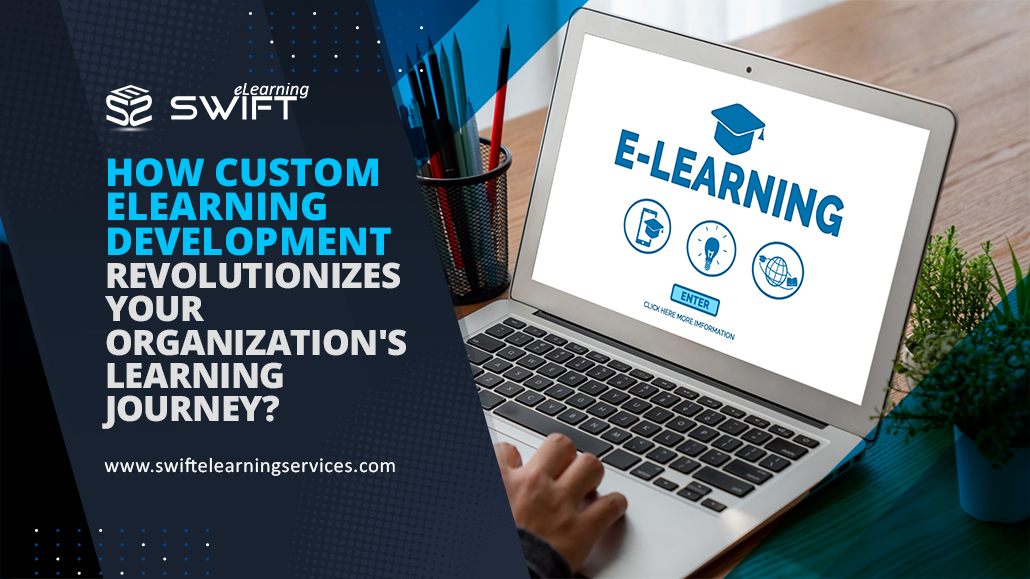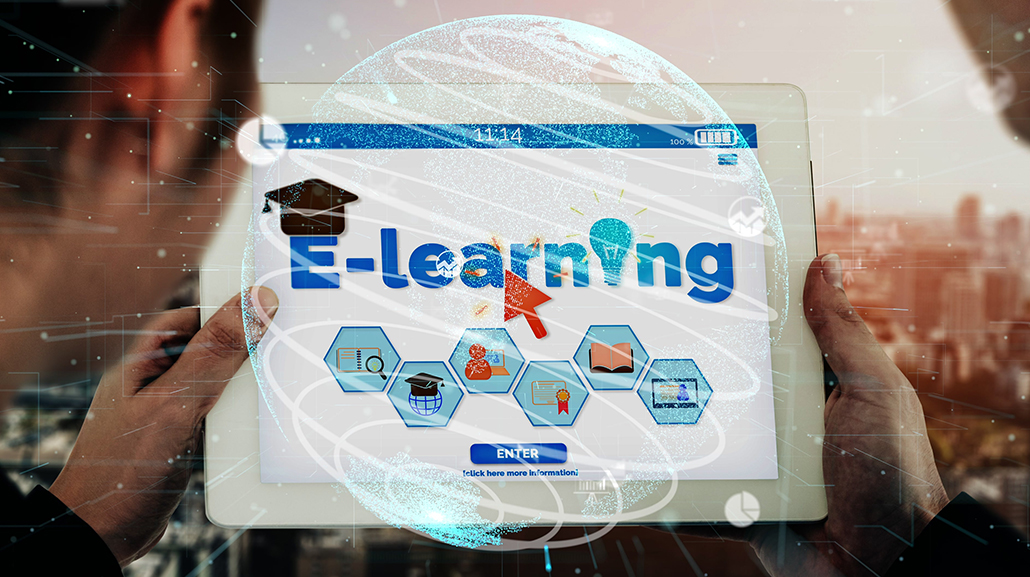How Custom eLearning Development Revolutionizes Your Organization’s Learning Journey?
1. Custom eLearning Development Revolutionizes Your Organization’s Learning Journey – Introduction
Discover how custom eLearning development revolutionizes your organization’s learning journey. Tailored courses, engaging multimedia, personalized learning paths, and mobile accessibility enhance engagement and knowledge retention. Drive performance, empower employees, and foster a culture of continuous learning.
In today’s fast-paced world, organizations are constantly seeking innovative ways to enhance their learning and development initiatives. One such solution that has gained immense popularity is custom eLearning development.
This article explores how custom eLearning development revolutionizes an organization’s learning journey, providing tailored and impactful learning experiences to employees.
By leveraging the power of technology, organizations can create personalized and engaging eLearning courses that align with their specific needs, ultimately leading to improved knowledge retention and enhanced employee performance.
2. How Custom eLearning Development Enhances Engagement and Retention?
2.1 Engaging Multimedia Content for Effective Learning
Custom eLearning development allows organizations to create engaging multimedia content that caters to different learning styles. By incorporating videos, interactive quizzes, infographics, and simulations, learners are more likely to stay motivated and retain information. This multimedia approach captures learners’ attention and makes the learning experience more enjoyable and effective.
2.2 Personalized Learning Paths for Individual Growth
Every employee has unique learning needs and preferences. Custom eLearning development enables organizations to create personalized learning paths tailored to individual learners. By assessing learners’ existing knowledge and skills, organizations can provide targeted content that addresses their specific areas of improvement. This personalized approach fosters a sense of ownership and empowers employees to take control of their learning journey.
2.3 Gamification for Motivation and Progress Tracking
Gamification elements, such as badges, leaderboards, and rewards, can be integrated into custom eLearning courses to motivate learners and track their progress. By adding game-like features, organizations can create a competitive and fun learning environment that encourages active participation and continuous improvement. Learners can track their achievements and compare their progress with peers, fostering healthy competition and boosting engagement.
2.4 Mobile Accessibility for Anytime, Anywhere Learning
Custom eLearning courses are often designed to be mobile-responsive, allowing learners to access training materials anytime, anywhere, using their smartphones or tablets. This flexibility eliminates geographical barriers and time constraints, enabling employees to engage in learning activities at their convenience. Whether it’s during their daily commute or during breaks, learners can seamlessly continue their learning journey without disruptions.
3. How Custom eLearning Development Drives Performance and ROI?
3.1 Targeted Training for Specific Skills and Knowledge
Custom eLearning development enables organizations to deliver targeted training programs that focus on specific skills and knowledge gaps. By identifying critical areas for improvement, organizations can create comprehensive eLearning courses that address these gaps effectively. Employees receive the training they need to perform their roles more efficiently, leading to improved productivity and performance.
3.2 On-demand Access to Updated Content and Resources
In rapidly evolving industries, staying up-to-date with the latest information is crucial. Custom eLearning development ensures that organizations can provide on-demand access to updated content and resources. Whether its regulatory changes, industry trends, or new product releases, learners can access the most current information through their eLearning courses. This ensures that employees are equipped with the latest knowledge and can adapt to changing business landscapes.
3.3 Continuous Learning for Professional Growth
Custom eLearning development fosters a culture of continuous learning within organizations. Through ongoing training and development opportunities, employees can continually enhance their skills and knowledge, leading to professional growth and career advancement. By investing in their employees’ learning journeys, organizations demonstrate their commitment to employee development and create a motivated workforce.
3.4 Performance Analytics for Data-driven Decision Making
Custom eLearning platforms often provide robust analytics and reporting capabilities. Organizations can track learners’ progress, identify areas of improvement, and measure the effectiveness of their eLearning programs. Performance analytics offer valuable insights into learners’ engagement levels, knowledge retention rates, and overall course effectiveness. This data-driven approach allows organizations to make informed decisions regarding their learning and development strategies.
4. How Custom eLearning Development Empowers Employees?
4.1 Increased Confidence and Competence
Custom eLearning development empowers employees by equipping them with the knowledge and skills they need to excel in their roles. Through well-designed eLearning courses, employees gain confidence in their abilities and feel more competent in performing their tasks. This increased confidence translates into improved job satisfaction and higher levels of employee engagement.
4.2 Flexibility and Self-paced Learning
Custom eLearning courses offer flexibility and self-paced learning options, allowing employees to learn at their own speed. Learners can revisit modules, review content, and take assessments as many times as needed. This flexibility accommodates different learning styles and ensures that employees can fully grasp the concepts before moving forward. Self-paced learning promotes autonomy and empowers employees to take control of their learning journey.
4.3 Continuous Support and Knowledge Sharing
Custom eLearning development can incorporate social learning features, such as discussion forums and chat functionalities. These features encourage learners to collaborate, share insights, and support each other’s learning journey. Employees can seek help, share best practices, and engage in discussions to deepen their understanding of the subject matter. This collaborative environment promotes knowledge sharing and fosters a sense of community within the organization.
4.4 Recognition and Career Development Opportunities
Custom eLearning courses can include assessments and certifications that recognize employees’ achievements and validate their newly acquired skills. These certifications can serve as a tangible proof of competence and can contribute to career development opportunities within the organization. By offering recognition and advancement pathways, organizations motivate employees to actively participate in their learning journey and strive for excellence.
5. Conclusion – Custom eLearning Development Revolutionizes Your Organization’s Learning Journey
Custom eLearning development has revolutionized the learning journey for organizations. By embracing this innovative approach, organizations can create tailored and engaging eLearning courses that enhance employee engagement, knowledge retention, and overall performance.
Custom eLearning development offers flexibility, personalization, and scalability, empowering employees to take ownership of their learning journey. Furthermore, it enables organizations to measure the effectiveness of their training programs and make data-driven decisions.
By investing in custom eLearning development, organizations can unlock the full potential of their workforce and drive continuous learning and growth.
6. FAQ’s About Custom eLearning Development Revolutionizes Your Organization’s Learning Journey
How does custom eLearning development differ from off-the-shelf eLearning solutions?
Custom eLearning development involves creating tailored learning experiences from scratch, specifically designed to meet an organization’s unique requirements. Off-the-shelf eLearning solutions, on the other hand, offer pre-built courses that cater to general learning needs. Custom eLearning development provides greater flexibility, personalization, and alignment with organizational goals.
Is custom eLearning development suitable for all types of organizations?
Custom eLearning development can benefit organizations of all sizes and industries. Whether it’s a small startup or a multinational corporation, custom eLearning allows organizations to address their specific learning and development needs. The flexibility and scalability of custom eLearning make it a versatile solution for organizations across various sectors.
How long does it take to develop a custom eLearning course?
The time required to develop a custom eLearning course can vary depending on factors such as course complexity, multimedia elements, and content volume. On average, the development process can range from a few weeks to a few months. It is essential to allocate sufficient time for content creation, design, review cycles, and testing to ensure a high-quality end product.
What are the key considerations when choosing a custom eLearning development partner?
When selecting a custom eLearning development partner, it is crucial to consider their expertise, experience, and portfolio. Look for a partner who understands your organization’s learning objectives, has a proven track record of delivering high-quality eLearning solutions, and can provide references or case studies. Collaborating with a reliable partner ensures a seamless development process and a successful outcome.
How can organizations measure the effectiveness of custom eLearning programs?
Organizations can measure the effectiveness of custom eLearning programs through various metrics, including learner satisfaction surveys, knowledge assessments, performance data, and feedback from managers or supervisors. Additionally, analytics provided by the custom eLearning platform can offer valuable insights into learners’ engagement levels and course completion rates. These metrics help evaluate the impact of eLearning programs and identify areas for improvement.
How can organizations ensure the long-term success of their custom eLearning initiatives?
By implementing the below strategies, organizations can ensure the long-term success and sustainability of their custom eLearning initiatives, leading to continuous learning and development within the organization.
Continuous Evaluation and Improvement: Regularly assess the effectiveness of eLearning programs by gathering feedback from learners, trainers, and stakeholders. Use this feedback to identify areas for improvement and make necessary adjustments to enhance the learning experience.
Content Updates and Maintenance: Keep the eLearning content up-to-date to align with evolving business needs, industry trends, and regulatory requirements. Regularly review and refresh the content to ensure its relevance and accuracy.
User Support and Technical Assistance: Provide ongoing support to learners to address any technical issues or challenges they may encounter during the learning process. Offer assistance through user guides, FAQs, and a dedicated help desk to ensure a smooth learning experience.
Encourage Continuous Learning Culture: Foster a culture of continuous learning within the organization by promoting the value of ongoing development. Encourage employees to explore additional resources, attend webinars or workshops, and actively seek opportunities for growth.
Data-driven Decision Making: Utilize the analytics and reporting features of the custom eLearning platform to gain insights into learners’ progress, engagement, and knowledge retention. Use this data to make data-driven decisions regarding the optimization of eLearning programs.
Regular Communication and Engagement: Maintain open lines of communication with learners and stakeholders to keep them informed about upcoming courses, new content, and any updates related to the eLearning initiatives. Encourage engagement through newsletters, discussion forums, or interactive sessions.






